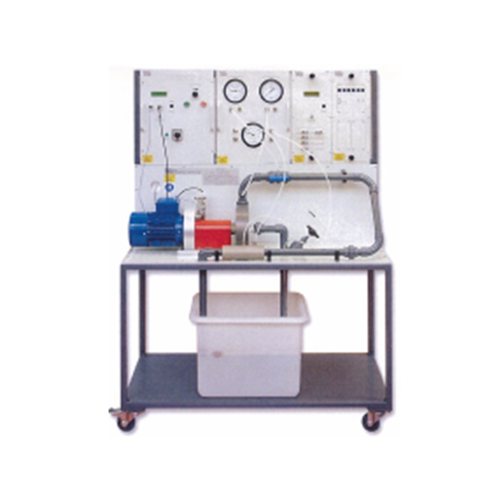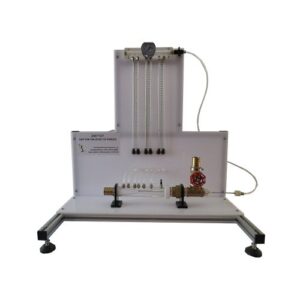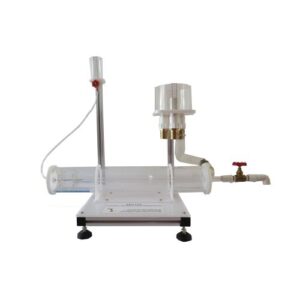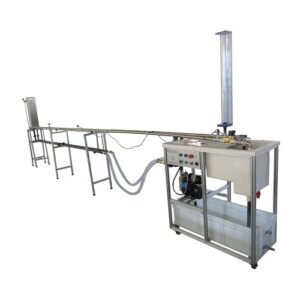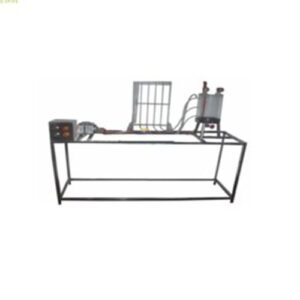SR-AH47 Centrifugal Pump Test Set
A compact, mobile and fully self-contained centrifugal pump test set that allows students to find the characteristics of a centrifugal pump. It also allows them to see (and hear) cavitation and understand the use of a Venturi meter and differential pressure measurement to find flow rate.
A motor mounted in bearings drives the pump. The pump draws water from the integral reservoir. The water travels up through a valve and filter, through an inlet valve to the pump body, then out through a delivery valve. It then passes through a Venturi meter and returns to the reservoir for re-use. This self-contained water supply keeps water consumption to a minimum. The optional stroboscope makes the effect easier to see.
Instrument and control modules fit into a frame above and behind the pump. An electronic Motor Drive controls the pump speed. A strain gauge load cell measures the driving torque of the pump and a sensor measures pump speed. A display on the Motor Drive shows speed and torque and automatically calculates and displays true ‘shaft’ power. The differential pressure across the Venturi gives flow rate. The adjustable inlet and delivery valves allow students to create different operating conditions.
ShouldShine supply a Digital Pressure Display (ADP1) as standard but offer an optional, additional easy-to-read Analogue Pressure Display. Both instruments display the inlet pressure, delivery pressure and differential pressure across the Venturi.
The Analogue Display is more visual, but the Digital Display increases ease of measurement, and allows connection to ShouldShine frame-mounted Versatile Data Acquisition System (VDAS-F, available separately).
The equipment can use both analogue and digital instrumentation at the same time, enabling students to compare the different pressure measurement methods.
- Centrifugal pump performance and characteristics, typically head versus flow and efficiency versus flow
- Non-dimensional performance characteristics
- Flow measurement using a Venturi tube
- Demonstration of cavitation

